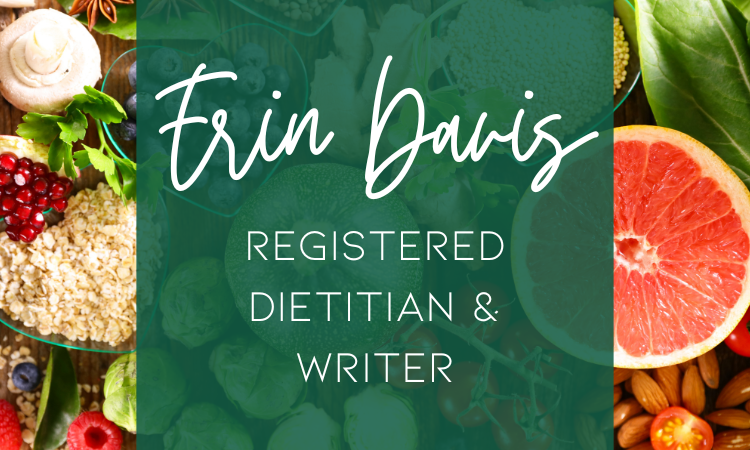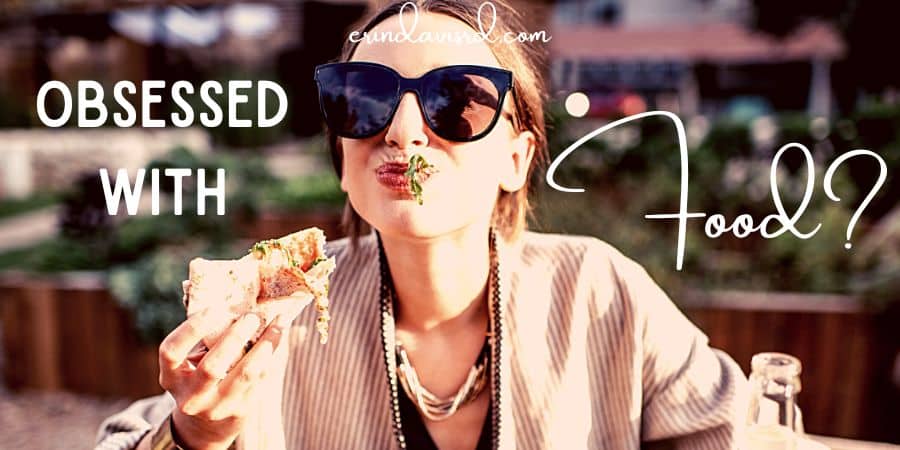Do you feel like you are obsessed with food? Maybe even feel like you have a food addiction? You aren’t alone. Food addiction is of great interest in the research community. Today, I’m sharing tips for food obsession.
First of all, let me start by saying that you aren’t a person who lacks willpower. You aren’t mentally weak.
Feeling obsessed with food can be a direct consequence of dieting. When we restrict certain foods, we tend to want them even more.
Anyone who has been on a diet can relate to this concept. However, we may start another diet, believing we’ll have better self-control this time.
If you’re new here, welcome! I’m Erin, an anti-diet dietitian who helps people stop the vicious cycle of dieting. You can make peace with food, rather than letting food control your thoughts.
Dieting consumes a lot of mental energy. Do you find your thoughts in the morning are of what you’ll eat today? Go to bed feeling guilty about the food you ate?
Is food or diet the topic of most of your conversations?
In today’s post, I’m exploring why you may feel obsessed with food. Plus, we’ll talk about what you can do to free up some mental space and ease the food fixation.
Let’s jump in!
Why are you obsessed with food?
You may think that you just have some unique emotional weakness around food, but I’m going to demonstrate how you aren’t broken or weak.

I want you to not think of a balloon. Seriously, don’t think of balloons right now. Use your will-power while I talk to you about balloons.

Balloons are a great addition to a birthday party, they float, kids love them, and they come in many different colors.
I’ve even seen some expecting couples use balloons to announce that they are having a boy or a girl.
So, what are you thinking about right now? Is it balloons, by chance? It would be completely normal if you were envisioning balloons, or even picturing holding them.
I told you not to think of them, but does that eliminate the thought from your mind?
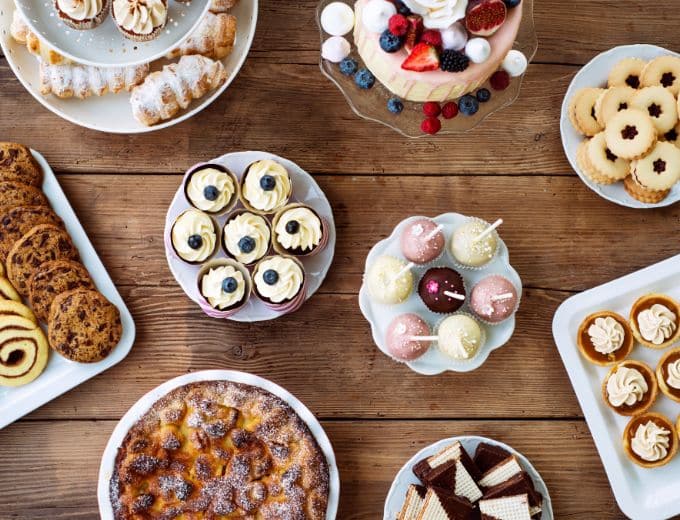
Similarly, when we are told that we shouldn’t have sugar, carbohydrates, fast food, etc., we tend to think about them even more than we would have normally.
Furthermore, you don’t have to hold a balloon several times a day to survive. You have to eat food. So the very thing you’re trying not to think of, you need.
You can’t just put food out of your mind. It’s a matter of survival and feeling properly fueled. So combine your physiologic need for food with an intention to forget about the foods you love.
It’s an impossible task! Instead, you become preoccupied with food. Not only do we obsess about food, but when we deny ourselves permission to eat certain foods, those foods become forbidden.
We consider them “bad” and we feel guilty if we eat them. When we feel guilty, we over-restrict, and the cycle continues.
Do you actually have a food addiction?
While food addiction is not technically a diagnosis, many still believe they have an addiction to food.
I admit. The science behind the concept of food addiction is complex. It’s been linked with depression, PTSD, ADHD, former smokers, certain genetic factors, and more.
There is a specific brain reward we get from certain foods. It’s similar to drugs and alcohol. Rarely does a person have an addiction to broccoli.
It’s the high-carb, high-fat, comfort foods that you crave. You may even find you have no control when you eat these foods.
However, before you dive into medications and intensive therapy, I’d challenge you to give up dieting for a bit and see what happens.
Have you ever looked longingly at cookbooks or food advertisements while dieting?
How about food boards on Pinterest?
When you stop dieting, you may find the obsession with food disappears.
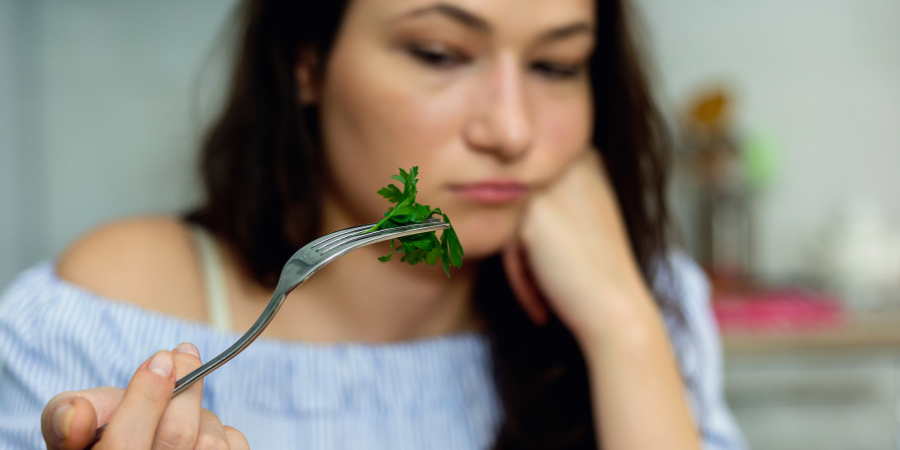
How to stop obsessing about food
Do you want to live life without being consumed by food? Here are some tips so you can overcome food obsession.
Experiment with a diet-free month
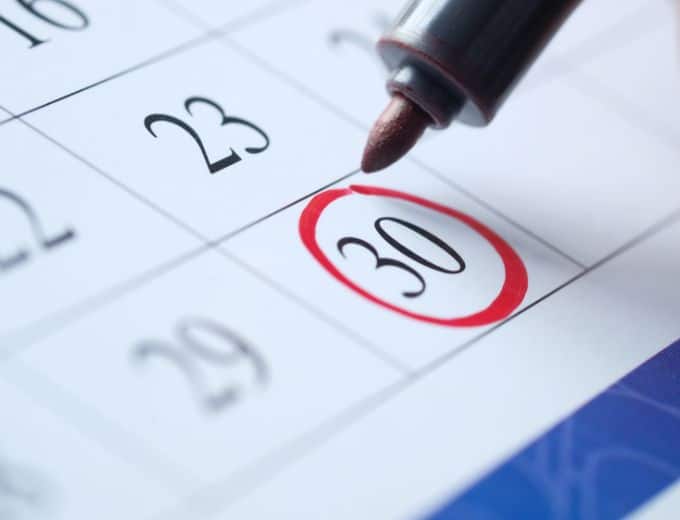
It may be scary to give up dieting altogether. As much as I’d love for you to go all in, that may not be what you want right now.
Give it a try for 30 days and see what happens. You may be surprised to find your thoughts are focused elsewhere.
Give yourself permission to eat all foods

What’s your forbidden food? Allow yourself to eat it everyday until you no longer want it.
The process is called habituation. If pizza is your off-limits food and you permit yourself to eat it daily, you will eventually tire of it. No longer will you be obsessed with that food, I promise!
Explore your favorite foods
Has chronic dieting made you lose track of the foods you love? Find your favorites again. Take a few minutes to reflect on your most-loved foods.
Now allow yourself to have them. Just like your forbidden food, you are going to permit yourself to eat it daily until you’ve had your fill.
Journal

As you experiment with ditching diets and enjoying the your favorite foods, journal how you’re feeling. Does it feel good to eat foods you like? Are you overwhelmed with guilt? What are some of the pros and cons of giving up dieting?
Journaling your feelings can be cathartic and healing. It’s a low-risk way to explore your difficult emotions.
I journaled as I was on my intuitive eating journey and looking back on my thoughts is very insightful to see the shift in my focus.
Eat slowly and mindfully

Unlike when you are in post-diet binge mode, you are going to sit down and enjoy your food. I have some mindful eating activities you can try here.
Mindful eating strategies are beneficial for those with disordered eating and in weight management. When you eat without distractions, you have a chance to honor your hunger and feel your fullness cues.
Properly fuel your body
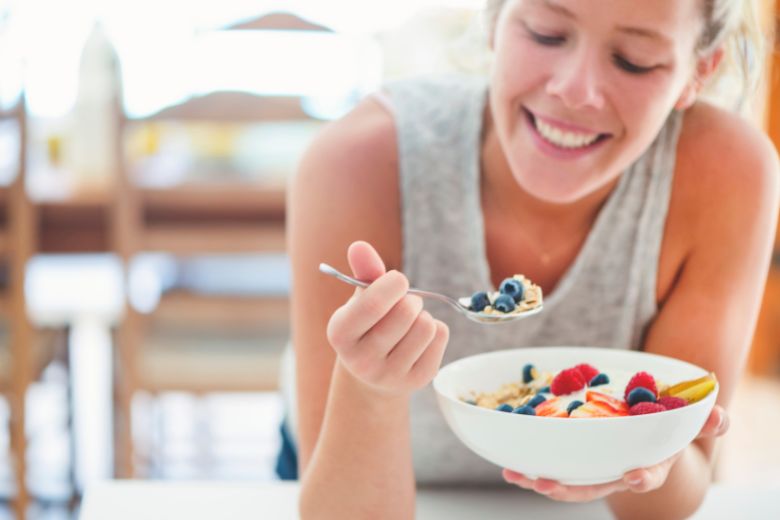
Often when we diet, we are underfueling our bodies. When you are consistently eating too little, you will not be able to focus on things besides food.
So here’s your reminder to give your body what it needs.
Your body needs carbs. It also requires a variety of foods to get all the nutrients it needs. Respect your body and nourish it.
Get support
Making peace with food and ridding yourself of food rules is how you break the guilt and shame cycle that comes along with dieting. Giving yourself full permission with ALL foods is freeing in so many ways.
But this may be challenging on your own. Can I help you on your journey? I can help!
Interested in managing your blood sugars, without dieting? Sick of planning another Monday of dieting?Book a discovery call to get started ASAP.
References
- Vasiliu O. Current Status of Evidence for a New Diagnosis: Food Addiction-A Literature Review. Front Psychiatry. 2022;12:824936. Published 2022 Jan 10. doi:10.3389/fpsyt.2021.824936
- Yeh J, Trang A, Henning SM, et al. Food cravings, food addiction, and a dopamine-resistant (DRD2 A1) receptor polymorphism in Asian American college students. Asia Pac J Clin Nutr. 2016;25(2):424-429. doi:10.6133/apjcn.102015.05
- Epstein LH, Temple JL, Roemmich JN, Bouton ME. Habituation as a determinant of human food intake. Psychol Rev. 2009;116(2):384-407. doi:10.1037/a0015074
- Tapper K. Mindful eating: what we know so far. Nutr Bull. 2022;47(2):168-185. doi:10.1111/nbu.12559
About the author
Erin is a registered dietitian and diabetes educator with almost 20 years of experience. She specializes in weight-inclusive diabetes care and prevention, intuitive eating, fitness, and women’s health. She works as a consultant and writer in the health and wellness space. Erin is passionate about empowering people to manage their own health and to have peace with food.
